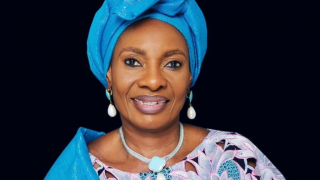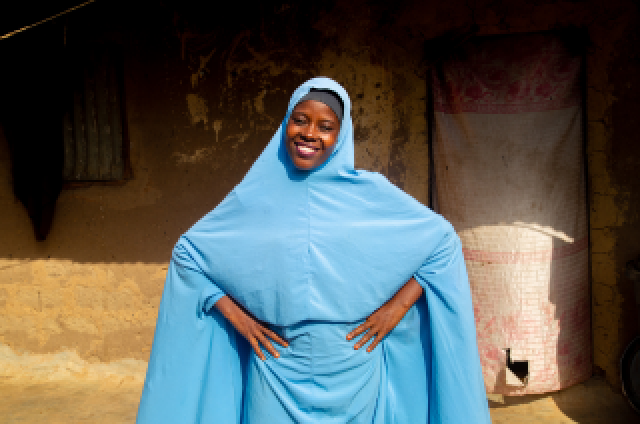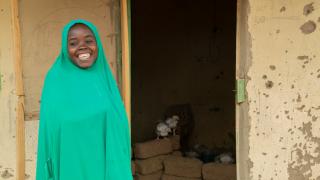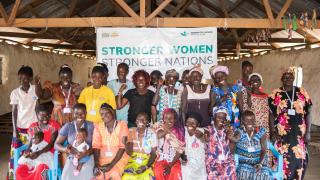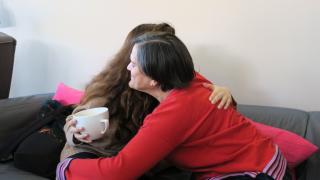Empowering Nigerian Women: 10 Essential Facts About Women's Rights
On paper, it might seem as though women's rights are protected in Nigeria but the reality is often different.
The country's constitution safeguards against discrimination on the basis of gender, and Nigeria is a signatory to many international conventions that seek to establish progress for women's rights.
But today, Nigerian women and girls continue to face the reality of widespread discrimination, violence and injustice. While constitutions and conventions matter, gender discrimination can often be deep-rooted, requiring a community-focused approach to bring about real change.
That's why our work, equipping women with the skills and tools they need to advocate for their own rights, remains so important.
To understand why urgent change is needed, read these ten key facts about women's rights in Nigeria.
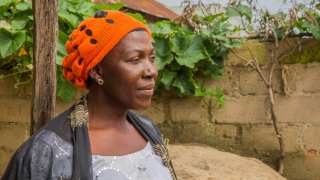
Violence Against Women in Nigeria
1. 31% of women aged 15-49 have experienced physical violence.
Source: Nigeria Demographic and Health Survey
2. 1 in 4 girls experience sexual violence before the age of 18.
Source: UNICEF
3. 19.5% of women have experienced Female Genital Mutilation (FGM).
Source: UNICEF
Harmful gender norms, that endorse male power over women, act as a foundation for violence against women and girls. By unraveling stereotypes and breaking the stigma for survivors, we can tackle this epidemic of violence.
Early Marriage in Nigeria
4. 43% of girls are married before the age of 18.
Source: Nigeria Demographic and Health Survey
5. 16% of girls are married before the age of 15.
Source: Nigeria Demographic and Health Survey
When a girl enters an early marriage, this often signifies the end of her education, limiting her ability to become financially independent and reach her full potential. Ensuring women have fair and equal access to opportunities within the labour market is key to reducing the number of girls entering early marriages.
Women's Health in Nigeria
9. Nigeria accounts for nearly 20% of all global maternal deaths.
Source: World Health Organisation
10. Over a quarter of mothers considered their last birth as a result of an unwanted pregnancy.
Source: Performance Monitoring for Action
Healthcare can be expensive in Nigeria, particularly for those living in poverty. Patriarchal social norms can prevent women from having a say in the family's financial spending or other key familial decisions, including those surrounding pregnancy and birth control. Helping women feel empowered to contribute to these decisions is a step towards improving maternal health in Nigeria.
When women are excluded from public life, subjected to discrimination and threatened with violence, they are less able to show the world their true power and potential. As a result, entire communities miss out on a key ingredient that could help maintain long-term peace agreements, create more just and equitable societies, and support more stable and productive economies.
Through our Stronger Women, Stronger Nations Programme, we help women to defend and advocate for their own rights so that they can build brighter futures for themselves, their families and their communities.
Read more
Suraiya
subtitle:
"When I found myself in the programme, I was happy. Now I want members of my family to also benefit from this programme."
Women for Women International invests in the power of women living in these communities. As we celebrate Women's History Month, we reflect on the progress of women using their #PowerToChange in their lives and communities for generations to come.
More than one year on from Russia's brutal invasion of Ukraine and our Managing Director, Sara Bowcutt, shared her reflections with Seida Sarić, Director of Žene za Žene International), our sister organisation in Bosnia and Herzegovina, and Kateryna Shukh, Vice President of Bereginja – Mariupol’s Women’s Association.

